Summer Safety Tips for Kids
Co-parents should discuss these 5 tips to keep their kids safe this summer.
- 4 min read
- health & wellness
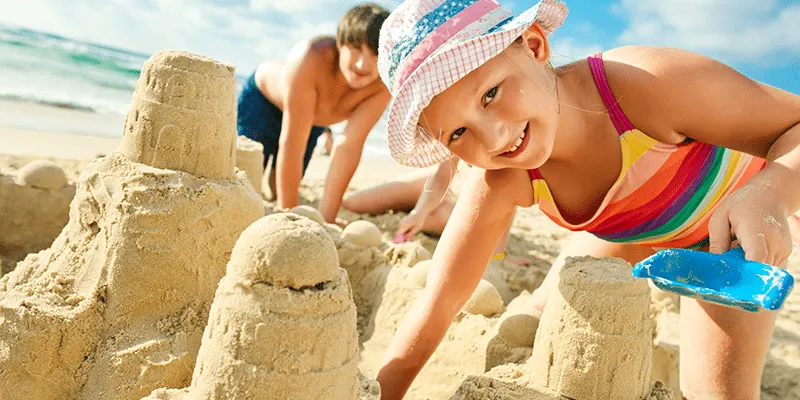
With school out for the summer, parents are tasked with making sure their kids stay safe and supervised at all times. According to the CDC, accidents (unintentional injuries) are the leading cause of death for those ages 19 and under. To keep children safe over the summer, it’s crucial for co-parents to communicate with each other and with their kids regarding rules and guidelines. Here are 5 summer safety tips for kids that you’ll want to discuss:
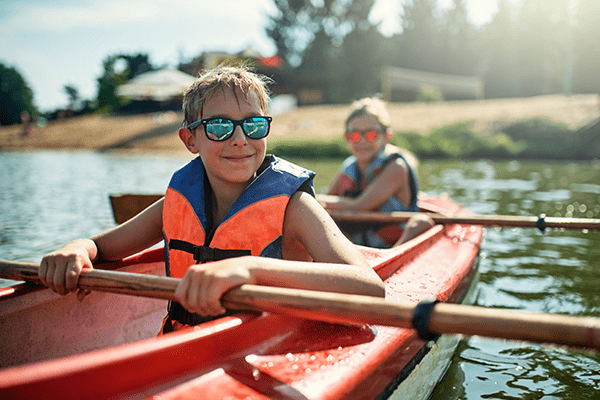
1. Water safety
As the heat kicks up, more families gravitate to the water, whether that be the beach, the pool, the river, or the lake. It’s imperative for children who cannot swim to wear a flotation device at all times while around water, such as a life jacket.
Teaching your children to swim at an early age is practical, especially if you have a pool or plan to be out on the water a lot. Giving kids the knowledge and power to protect themselves automatically adds a layer of safety, and it can help give you peace of mind.
Your child should always be supervised while swimming, whether they’re with you, your co-parent, or a caregiver. Make sure your child understands this. Additionally, you and your child should be informed of any water safety guidelines that are in place wherever you are, such as on a boat or at the beach.
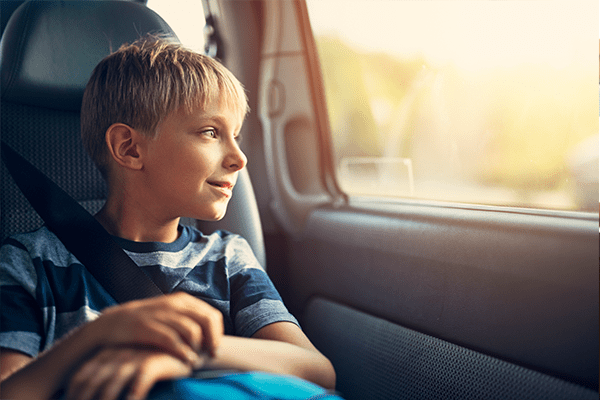
2. Heat safety
Kids are typically outside more during the summer, but with that bright, beautiful sunshine comes an increased risk of heat exhaustion. Some of the signs in children include:
- An elevated body temperature, usually between 100˚ and 104˚ Fahrenheit
- Cool, clammy skin despite the heat
- Goose bumps
- Fainting, dizziness, or weakness
- Headache
- Increased sweating
- Increased thirst
- Irritability
- Muscle cramps
- Nausea and/or vomiting
On hot days, make sure your child takes frequent breaks from playing outside or spends ample time in the shade. Kids also need to stay hydrated throughout the day. Again, you, your co-parent, and your child need to be aware of heat safety risks and what to do if symptoms begin.
Additionally, never leave your child in the car alone. Even if it’s not that hot outside, car temperatures can rise extremely quickly, and it’s not worth the risk. You should also make a habit out of checking the backseat of your vehicle to avoid leaving your child in the car accidentally.
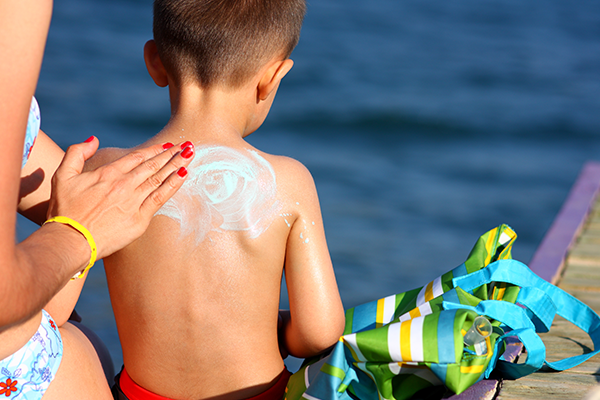
3. Sun safety
According to the American Academy of Pediatrics, most sun damage occurs during childhood, which can increase your child’s risk of skin cancer later in life. Sunburn can also cause serious pain and discomfort to your children right away.
Healthychildren.org suggests these simple rules to protect your family from sunburns:
- Keep babies younger than 6 months out of direct sunlight. Find shade under a tree, an umbrella, or the stroller canopy.
- When possible, dress yourself and your children in cool, comfortable clothing that covers the body, such as lightweight cotton pants, long-sleeved shirts, and hats.
- Select clothes made with a tight weave; they protect better than clothes with a looser weave. If you’re not sure how tight a fabric’s weave is, hold it up to see how much light shines through. The less light, the better. Or you can look for protective clothing labeled with an Ultraviolet Protection Factor (UPF).
- Wear a hat with an all-around 3-inch brim to shield the face, ears, and back of the neck.
- Limit your sun exposure between 10:00 am and 4:00 pm when UV rays are strongest.
- Wear sunglasses with at least 99% UV protection. Look for youth-sized sunglasses with UV protection for your child.
- Use sunscreen.
Discuss these sun safety tips with your co-parent and child so that everyone is on the same page and can practice these guidelines at all times.
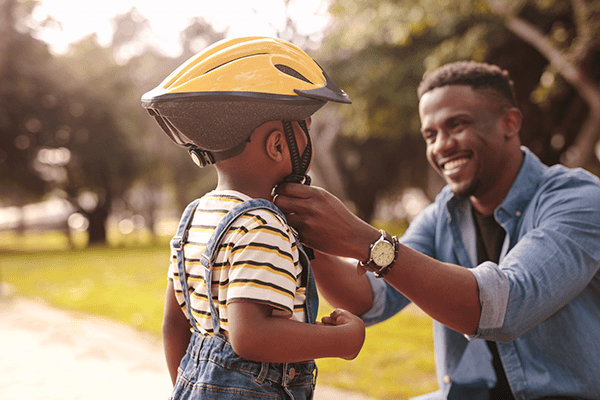
4. Street safety
Whether your child is an avid walker, runner, bike rider, skateboarder, or sidewalk skipper, they must be hyper vigilant while near the road or on the street. Your kids should always be supervised when playing outside, but they also need to be aware of their surroundings and understand the dangers they could face.
If any of these activities are taking place in the dark, your child needs to wear light-colored or reflective clothing so cars can easily spot them. If your child is riding a bike, skateboard, or scooter, a helmet is imperative. To avoid injury, you or your co-parent should always check your child’s equipment beforehand to make sure everything is working properly.
5. Fire safety
Fireworks are often a fun summer activity, but they can also be extremely dangerous. You and your co-parent should only purchase fireworks legally, from a trusted source. Some general rules to follow include:
- Never let young children touch or light fireworks.
- Keep a bucket of water or hose handy.
- Never light a firework that didn’t go off and dispose of it properly.
- Don’t let small children play with bottle rockets, sparklers, or other similar products.
Of over 10,000 people treated for firework injuries in U.S. emergency rooms each year, nearly a third are children under 15 years old. It’s crucial for you, your co-parent, and your child to either discuss firework safety ahead of time or agree not to partake in firework-related activities.
Keep your kids safe this summer
As a parent, it’s hard not to worry about your kids, no matter what they’re doing or who they’re with. Following these 5 tips this summer can help take some of the pressure and stress out of your summer fun.
If you and your co-parent need assistance with communication and coordination this summer, try TalkingParents. Read our Co-Parenting Tips for Summer Break to learn how our features can help.